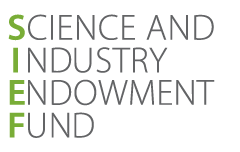Supply Chain Integrity Phase 2 Digital Initiative
Australia has a reputation for high quality food that is safe to eat. Consumer trust in the provenance of that food – including region of origin, sustainability and ethical production – creates premium products that command higher prices and open up new markets for Australian producers. The long-term goal of the Supply Chain Integrity Phase 2 initiative is to support the national target of growing the Australian agricultural sector to $100B by 2030. This second phase continues our focus on strengthening supply chain integrity systems for Australian industry and uses the red meat sector as a use case to develop and validate technologies that enhance brand trust, privacy and efficiency for producers.
The first phase of the Supply Chain Integrity Digital Mission was completed in September 2019 delivering research outcomes in private data analytics, computer vision, automated compliance and security relevant to supply chains. This second phase builds upon the outcomes of the first phase by maturing integrity research and integrating technologies for industry demonstrators in the red meat industry.
The three research work packages are:
- Automated Farm Provenance. Most of the provenance claims valued by consumers relate to the farm where the animals are raised. These include origin (region or country), animal welfare and sustainable practices. The automated farm provenance system developed in this initiative integrates a suite of new technologies deployed on animals and in the paddock, enabling real-time production monitoring. The system automates data collection and compliance by reliably collecting, validating and securely communicating data from multiple devices on the farm and multiple sources in the cloud. Developing solutions that automate animal monitoring systems and audit and compliance checks will lead to increased efficiencies for producers and export regulatory compliance respectively.
- Production Traceability. Complementing the creation of trustworthy provenance information through the supply chain, data analytics was used to ensure the integrity of that information. Our research demonstrated that 3D imaging and machine learning technologies have potential to bridge the gap of tracing individual pieces of meat, as they move through the production process, back to the source animal. Improved visibility of produce transported through the supply chain was demonstrated using tracking sensors and analytics on supply chain data collected in real time.
- Biological Origin. A problem with supply chain integrity is that even with perfect integrity of the digital data, there remains the possibility of substitution of the food product so the digital data does not relate to the food purchased by the consumer. To overcome this there is ongoing research to create a physical signature of the product based on physical characteristics such isotopic ratios, trace elements and genomic information that can be measured to verify the biological origin of an agricultural product. Our research investigated accurate, rapid and low-cost techniques that confirm the authenticity of a claim that a product comes from Australia, or a specific region in Australia. Several unique biological signatures that can be used to validate biological origin were identified. Some of the physical data required for the model will be data that farmers do not want to share so to address this new privacy‑preserving technologies have been developed that give farmers confidence to securely share data without revealing unique commercial information about their farms.
Our research has further advanced underpinning science to deliver impact by strengthening brand trust, and making Australian industry more competitive and able to secure and develop new growth markets. By partnering with industry and government, we will continue to work toward industry uptake of the smart animal monitoring systems and automated compliance tools; and validation of the biological origin approach that uniquely identifies our trusted Australian products.
